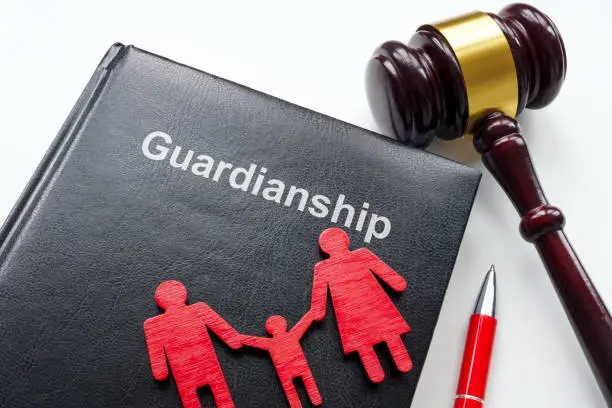When facing the twilight years of life, many Texans find themselves or their loved ones in need of legal protection and decision-making support. This is where guardianship and end-of-life decisions come into play. These concepts are critical in ensuring that people honor and respect the best interests and wishes of those unable to make decisions for themselves, even though they are often complex and emotionally charged. In this comprehensive article, we will delve into the intricacies of guardianship and end-of-life decisions in Texas, exploring the legal authority, processes, and implications of these crucial aspects of elder law.
Understanding Guardianship in Texas
Guardianship is a legal arrangement where a court appoints an individual (the guardian) to make decisions for someone (the ward) who is incapable of doing so themselves. The Texas Estates Code offers a detailed framework for guardianship, safeguarding the rights and needs of vulnerable individuals.
Types of Guardianship
Guardianship of the Person
This type of guardianship allows the guardian to make decisions about the ward’s care, including medical treatments, living arrangements, and general welfare. It is typically established when the ward cannot manage their personal needs due to age, illness, or disability.

Guardianship of the Estate
Here, the guardian is responsible for managing the ward’s financial affairs. This includes handling assets, paying debts, and ensuring the financial stability of the estate. It is essential for safeguarding the ward’s financial resources and ensuring that their economic needs are met.
Limited Guardianship
In cases where the ward can make some decisions but needs assistance with others, a limited guardianship may be established. This arrangement allows the guardian to make decisions in specific areas while the ward retains some independence. It is a flexible approach that recognizes varying degrees of capability.
The Guardianship Process in Texas
Establishing guardianship involves several legal steps, each designed to protect the ward’s rights and ensure appropriate management of their affairs.
Filing an Application
The process begins by filing an application for guardianship in the county court where the proposed ward resides. The application must include comprehensive details about the ward’s condition, the necessity of guardianship, and the qualifications of the proposed guardian. This document initiates the court’s review process.
Investigation and Evaluation

After the application is filed, the court appoints an attorney ad litem to represent the proposed ward’s interests. This attorney ensures that the ward’s rights are protected throughout the proceedings. Additionally, a medical evaluation may be ordered to assess the ward’s capacity and confirm the need for guardianship.
Court Hearing and Appointment
A hearing is scheduled to evaluate the evidence and determine whether guardianship is necessary. During this hearing, the court considers the findings from the investigation and evaluation. If the court deems guardianship appropriate, it issues an order appointing the guardian and specifying their responsibilities.
Ongoing Supervision
Guardianship is subject to continuous court supervision to ensure that the guardian fulfills their duties responsibly. This includes filing annual reports detailing the ward’s condition and the management of their estate. These reports help maintain transparency and accountability.
End-of-Life Decisions in Texas
End-of-life decisions involve making choices about medical care and treatment when an individual is nearing the end of their life or is incapacitated. Texas law provides several mechanisms to guide these decisions and ensure that they reflect the individual’s wishes.
Advance Directives
Advance directives are legal documents that allow individuals to specify their preferences for medical treatment and end-of-life care. The primary types of advance directives in Texas are:
Living Will (Directive to Physicians and Family or Surrogates)
A living will outlines an individual’s wishes regarding medical treatment if they become terminally ill or are in a persistent vegetative state. It guides healthcare providers and family members on whether to pursue life-sustaining treatments such as mechanical ventilation or tube feeding.
Medical Power of Attorney
This document designates a trusted person (the agent) to make medical decisions on behalf of the individual (the principal) if they are unable to do so themselves. The agent can only make medical decisions and cannot handle financial or other matters.
Do Not Resuscitate (DNR) Orders
A Do Not Resuscitate (DNR) order instructs healthcare providers not to perform cardiopulmonary resuscitation (CPR) if the individual’s heart stops or they stop breathing. In Texas, a DNR order is typically issued by a physician based on the patient’s or their representative’s request.
Out-of-Hospital DNR Orders
An Out-of-Hospital DNR order applies to situations outside hospital settings, such as at home or in a nursing facility. It ensures that emergency medical personnel honor the individual’s wishes regarding resuscitation, providing clear instructions for care in non-medical settings.
Legal Authority in End-of-Life Decisions
The authority to make end-of-life decisions generally follows a hierarchical structure, depending on the individual’s capacity and available legal documents.
Decision-Making Hierarchy
The Individual
If the individual is capable, they have the ultimate authority to make their own medical and end-of-life decisions. This includes executing advance directives and communicating their preferences to healthcare providers and family members.
Medical Power of Attorney
If the individual has designated an agent through a medical power of attorney, the agent has the legal authority to make medical decisions on their behalf if they become incapacitated. The agent must follow the individual’s expressed wishes.
Legal Guardian
If a court has appointed a guardian, the guardian has the authority to make decisions within the scope of their guardianship. This includes decisions about the ward’s personal and medical care.
Family Members
If there is no advance directive or legal guardian, medical staff may ask family members to make decisions. Texas law prioritizes the spouse, followed by adult children, parents, and adult siblings, in making medical decisions for an incapacitated individual.
Court Intervention
If there are disputes among family members or if no suitable decision-maker is available, the court may intervene. The court appoints a guardian or issues directives to resolve conflicts and ensures that decisions are in the individual’s best interests.
Challenges and Considerations
Guardianship and end-of-life decisions present several challenges and considerations, requiring careful attention and thoughtful handling.
Balancing Autonomy and Protection
Guardianship seeks to protect individuals who cannot manage their affairs but can also limit their autonomy. It is important to strike a balance between ensuring their safety and respecting their independence. This involves careful consideration of the ward’s capabilities and preferences.

Respecting Wishes and Values
End-of-life decisions should reflect the individual’s values and beliefs. Advance directives and clear communication with family members are essential for honoring these wishes. This respect for personal preferences ensures that decisions align with the individual’s desires.
Managing Conflicts
Disagreements among family members or between decision-makers and healthcare providers can arise. To manage and resolve conflicts effectively, communicate clearly, document thoroughly, and intervene legally when necessary. This approach ensures that decisions serve the best interest of the individual.
Navigating Legal Procedures
The legal procedures for establishing guardianship and making end-of-life decisions can be complex and time-consuming. Seeking legal advice and support can help navigate these processes effectively, ensuring compliance with the law and protection of the individual’s rights.
Conclusion
Guardianship and end-of-life decisions are pivotal aspects of elder law in Texas, designed to protect and honor individuals who are unable to make decisions for themselves. Understanding the legal authority, processes, and implications of these decisions is crucial to ensure respect for the best interests and wishes of those affected.
By familiarizing yourself with the intricacies of guardianship and end-of-life decision-making, you can navigate these challenging situations with confidence and compassion. Whether you are an appointed guardian, a designated agent, or a concerned family member, your role in these processes is vital in providing the support and protection that vulnerable individuals deserve.






